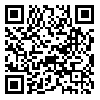BibTeX | RIS | EndNote | Medlars | ProCite | Reference Manager | RefWorks
Send citation to:
URL: http://jdm.tums.ac.ir/article-1-164-en.html
Background and Aim: According to controversies in the prevalence of hypersensitivity to dental local anesthetic drugs and patients who claim hypersensitivity to these drugs, the aim of this study was to determine the prevalence of hypersensitivity to dental amide local anesthetic drugs in patients referred to Tehran Allergy Clinic in 2005-2007.
Materials and Methods: In this Study (Review of existing data), records of 130 patients who were referred to "Tehran allergy Clinic" (2005-2007) were studied.
Results: The average age of patients was 29.5±18.8 years. 34% of cases showed positive skin reactions to at least one of the tested Lidocain concentrations and 10% of cases showed positive skin reactions to at least one of the tested Prilocain concentrations. There was a statistically significant difference in hypersensitivity to Lidocain 0.01 and 0.001 (p=0.017) and also between Lidocain 0.001 and 0.0001 (p<0.01). There was no statistically significant difference between other tested drug concentrations (p>0.05).
Conclusion: Many patients with history of hypersensitivity, show positive reaction to local dental anesthetic drugs. Prilocain hypersensitivity reactions are less than Lidocain. So application of Prilocain accompanies with less risk but its application should not be considered completely safe.
| Rights and Permissions | |
 |
This work is licensed under a Creative Commons Attribution-NonCommercial 4.0 International License. |




